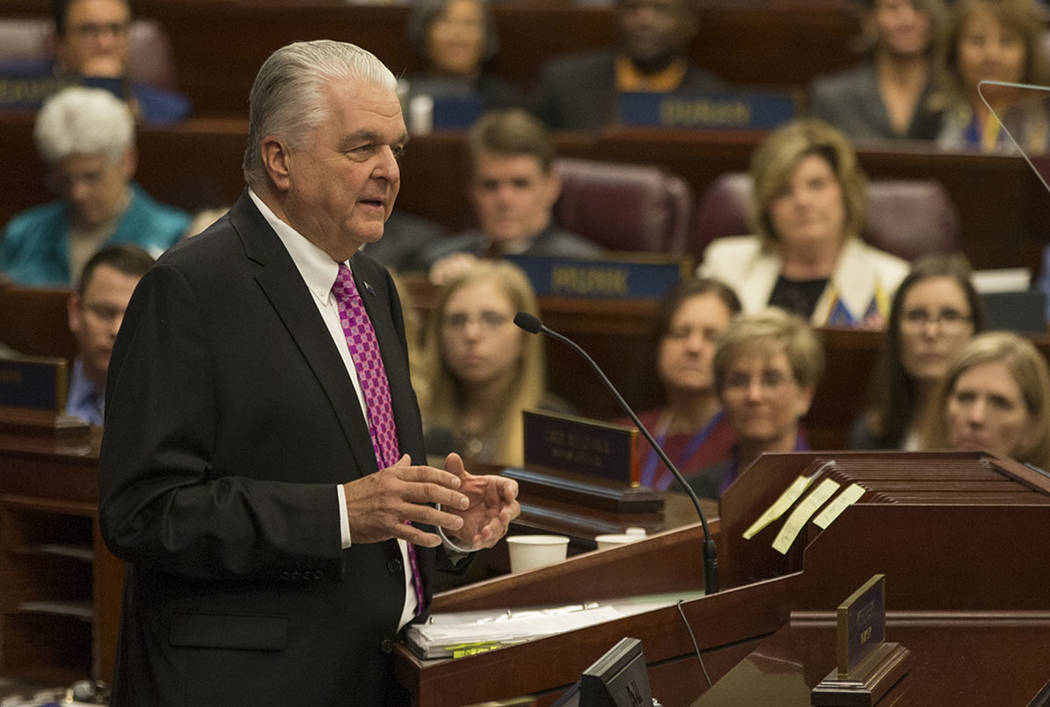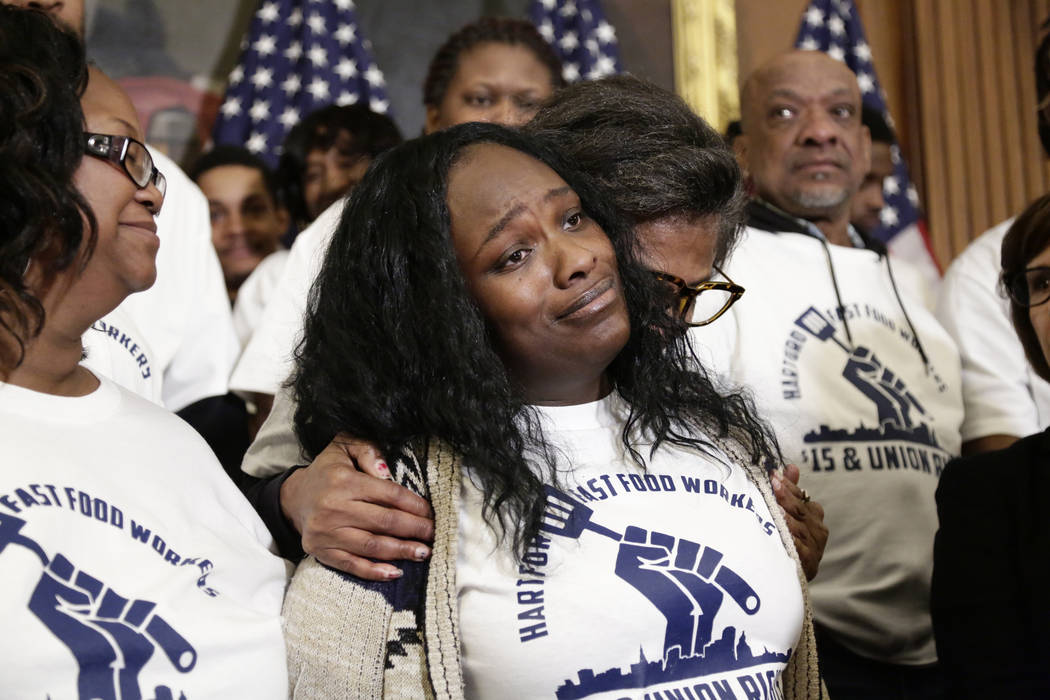Gov. Sisolak’s minimum wage increase may have mixed results


Gov. Steve Sisolak wants to see bigger paychecks for low-wage workers. At Wednesday night’s State of the State address, Sisolak said he is committed to working with business, labor communities and the Legislature to raise Nevada’s minimum wage.
“It’s impossible for an individual, let alone a family, to live on $7.25 an hour,” he said. “We are in a position to give our workers a raise, and we expect great return on that investment.”
But local and national economists say boosting the minimum wage can have mixed results for households.
Impact on Nevada
Nevada’s minimum wage is $7.25 per hour for employees with health benefits and $8.25 for those without. It was last raised in 2010, said Teri Williams, spokeswoman for the Nevada Department of Business and Industry.
According to Bureau of Labor Statistics data, 1.4 percent of hourly workers in Nevada — about 12,000 employees — were paid at or below the minimum wage in 2017. Nationally, about half of all workers paid the federal minimum wage or less were under 25.
Sisolak didn’t say how high he would want the new minimum wage, but other states — including New York, Massachusetts and California — have been working toward raising their minimum standard to $15 an hour.
The businesses most affected by minimum wage shifts are in the retail, personal care and restaurant industries, said Christopher Thornberg, founding partner of Los Angeles-based Beacon Economics.
Great Harvest Bread Co., which has three locations in the Las Vegas Valley, “really depends on a low wage” and tends to employ high school students, co-owner Kim Jacobs said.
Margins are thin, and if Nevada’s minimum wage went to, say, $12 an hour, “it would put me out of business,” she said.
One 2017 study from Harvard Business School found a $1 minimum wage increase makes a 3.5-star restaurant 14 percent more likely to close.
“It makes certain companies hire fewer people. It’s as simple as that. Or give less hours and shifts away,” Thornberg said. “Ultimately, that does reduce job opportunities, particularly for younger and lower-skilled workers.”
But Thornberg said the economy has a high enough job demand to make such negative effects nearly immaterial.
A minimum wage shift isn’t “terribly dramatic,” he said. “It influences fairly few people in the economy.”
But the effects of minimum wage changes “aren’t always that clear-cut,” said Jonathan Wright, a professor at Johns Hopkins University’s Department of Economics. “There’s a possibility that it reduces turnover … (but) we always wonder about short- and long-term effects.”
Las Vegas economist John Restrepo said case studies on minimum wage increases prove results are complicated. A higher minimum wage’s success relies on a variety of factors, like the local economy’s cost of living and the time it takes to implement.
“It’s hard to say if it’s good or bad,” said Restrepo, founder of RCG Economics. “A lot of these discussions get tied up in the politics of minimum wage … and become less based on facts and what research and data say and more on political views.”
The right time
Elizabeth Delgado, who works at an eatery in Meadows mall, said she earns $10 an hour. The 29-year-old married mother of two girls said she couldn’t imagine earning minimum wage, adding she would have to work full-time at that salary “to at least pay for gas and maybe a bill.”
Her husband earns a good salary working at a warehouse, she said, and “we don’t starve,” but they don’t indulge in luxuries.
“Now we eat what we want. … It’s getting better for us because I have this job,” Delgado said.
Heather Avila, chief operating officer at Weight Watchers of Las Vegas, said the weight-loss franchise has seven locations and 91 workers locally. Around 75 to 80 employees earn minimum wage, working clerical and customer-service jobs, but Avila said they only put in an average of two to six hours per week.
It’s often a supplemental or “hobby” job, she said, indicating the part-time workforce includes stay-at-home moms and retirees who want to “help others.”
Her full-time employees are not earning minimum wage, she noted.
“It’s not enough to feed your family or yourself,” Avila said.
Labor union SEIU Nevada Local 1107, which represents health care and public-sector workers, praised Sisolak for his interest in raising the minimum wage. Spokeswoman Regina Toney said the union plans to work with Sisolak to ensure Nevadans have access to union jobs.
“At a time when wealthy corporations continue to keep wages low and chip away at benefits, SEIU Nevada members are pleased that Governor Sisolak is committed to raising the minimum wage and the standard of living for all Nevadans,” Toney said via email. “Everyone who works deserves to be paid enough to provide for themselves and their families.”
Stephen Miller, director of UNLV’s Center for Business and Economic Research, said if the state were to raise the minimum wage, now would be the ideal time because the local economy has experienced a strong recovery since the 2008 recession.
Also, Restrepo said Nevada has allowed time for other states to test a higher minimum wage’s success.
“There’s been a lot of other states that have gone forward with these things before us, and we can learn,” he said.
Contact Bailey Schulz at bschulz@reviewjournal.com or 702-383-0233. Follow @bailey_schulz on Twitter. Contact Eli Segall at esegall@reviewjournal.com or 702-383-0342. Follow @eli_segall on Twitter.













